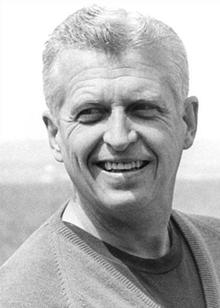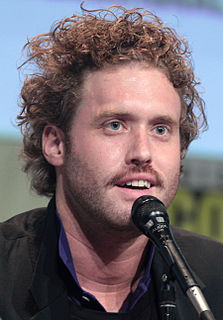A Quote by Lauren DeStefano
We figure out what death means when we're born, practically, and we live our whole lives in some kind of weird denial about it.
Related Quotes
Good therapy, gently but firmly, moves people out of denial and compartmentalization. It helps clients to develop richer inner lives and greater self-knowledge. It teaches clients to live harmoniously with others and it enhances Existential consciousness, and allows people to take responsibility for their effects on the world at large. For me , happiness is about appreciating what one has. Practically speaking,this means lowering expectations about what is fair, possible and likely. It means,finding pleasure in the ordinary.
They alone live whose lives are in the whole universe, and the more we concentrate our lives on limited things, the faster we go towards death. Those moments alone we live when our lives are in the universe, in others; and living this little life is death, simply death, and that is why the fear of death comes.
But how to know the falsity of death? How can we know there is no death? Until we know that, our fear of death will not go either. Until we know the falsity of death, our lives will remain false. As long as there is fear of death, there cannot be authentic life. As long as we tremble with the fear of death, we cannot summon the capacity to live our lives. One can live only when the shadow of death has disappeared forever. How can a frightened and trembling mind live? And when death seems to be approaching every second, how is it possible to live? How can we live?
All men and women are born, live, suffer and die; what distinguishes us one from another is our dreams, whether they be dreams about worldly or unworldly things, and what we do to make them come about... We do not choose to be born. We do not choose our parents. We do not choose our historical epoch, the country of our birth, or the immediate circumstances of our upbringing. We do not, most of us, choose to die; nor do we choose the time and conditions of our death. But within this realm of choicelessness, we do choose how we live.
If the denial of death is self-hatred, as it is to deny our freedom and live in fear of death (which is to say, to live in a form of bondage), then the acceptance and affirmation of death is indeed a form of self-love. But I'd want to make a distinction between a form of self-love which is essential to what it means to be human, and a narcissism of self-regard, like Rousseau's distinction between amour de soi and amour propre, self-love and pride.
Once you are afraid of death you are bound to be afraid of life. That`s why I am talking about this Hasidic approach. The whole approach consists of methods, ways and means of how to die - the art of dying is the art of living also. Dying as an ego is being born as a non `ego; dying as a part is being born as a whole; dying as man is a basic step towards being born as a God.
Nowadays, of course, just about our only solvent industry is the merchandising of death, bankrolled by our grandchildren, so that the message of our principal art forms, movies and television and political speeches and newspaper columns, for the sake of the economy, simply has to be this: War is hell, all right, but the only way a boy can become a man is in a shoot-out of some kind, preferably, but by no means necessarily, on a battlefield.
...but it was death that changed. People are still people. Some good, some bad. Death changed, and we don't know what death really means anymore. Maybe that was the point. Maybe this is an object lesson about the arrogance of our assumptions. Hard to say. But the world? She didn't change. She healed. We stopped hurting her and she began to heal. You can see it all around. The whole world is a forest now. The air is fresher. More trees, more oxygen.


































